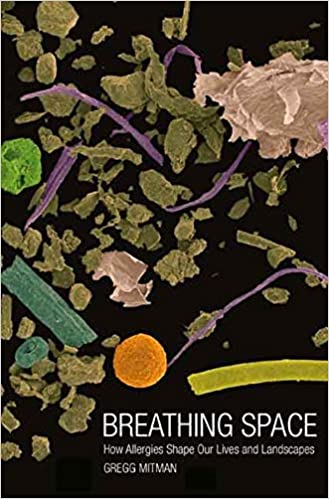By Gregg Mitman (NHC Fellow, 2004–05; 2020–21)

New Haven, CT: Yale University Press, 2007
From the publisher’s description:
Allergy is the sixth leading cause of chronic illness in the United States. More than fifty million Americans suffer from allergies, and they spend an estimated $18 billion coping with them. Yet despite advances in biomedicine and enormous investment in research over the past fifty years, the burden of allergic disease continues to grow. Why have we failed to reverse this trend?
Breathing Space offers an intimate portrait of how allergic disease has shaped American culture, landscape, and life. Drawing on environmental, medical, and cultural history and the life stories of people, plants, and insects, Mitman traces how America’s changing environment from the late 1800s to the present day has led to the epidemic growth of allergic disease. We have seen a never-ending stream of solutions to combat allergies, from hay fever resorts, herbicides, and air-conditioned homes to numerous potions and pills. But, as Mitman shows, despite the quest for a magic bullet, none of the attempted solutions has succeeded. Until we address how our changing environment—physical, biological, social, and economic—has helped to create America’s allergic landscape, that hoped-for success will continue to elude us.
Awards and Prizes
William H. Welch Medal (2012)Subjects
Environment and Nature / Medicine / History of Medicine / Environmental History / Diseases / Health / Health Care / Urban History /Mitman, Gregg (NHC Fellow, 2004–05; 2020–21). Breathing Space: How Allergies Shape Our Lives and Landscapes. New Haven, CT: Yale University Press, 2007.